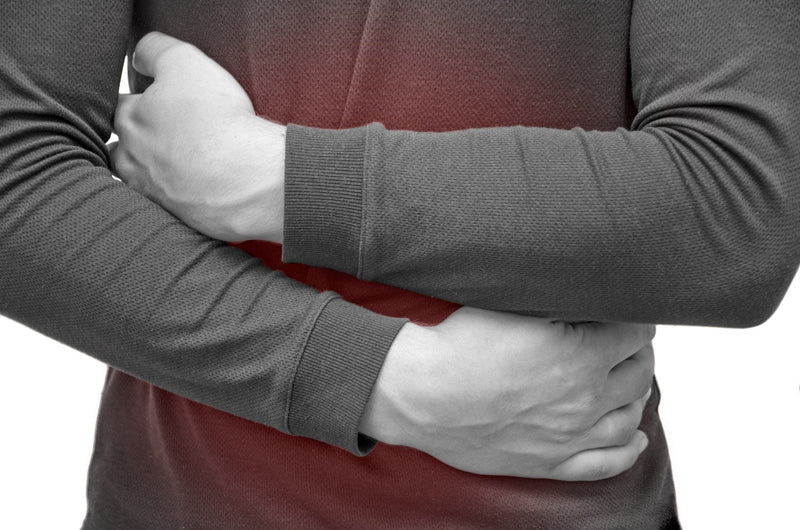Get a Free box of Gummies ($120 value) when you spend $200 or more. Now through Monday

The phrase “poor digestion? may bring a wide variety of things to mind, most likely symptoms you’ve personally experienced before. Digestive issues can encompass anything from occasional heartburn to more disruptive conditions, such as Crohn’s disease. However, even the more “minor? symptoms of poor digestion are not to be ignored. Any indication that the body is having difficulty digesting food is a sign that something is not quite right. This could indicate a lack of nutrient absorption or an imbalance of gut flora or could point to more serious issues. Because gut health is directly related to the health of the body as a whole, it must be addressed quickly and effectively.
 When it comes to nutrition, it’s not just what you eat, it’s what your body does with what you eat. You can be eating the best diet in the world, but if your digestive system is not efficiently breaking down your food, you may not be getting the nutrients you need.
When it comes to nutrition, it’s not just what you eat, it’s what your body does with what you eat. You can be eating the best diet in the world, but if your digestive system is not efficiently breaking down your food, you may not be getting the nutrients you need.
Signs that your body may not be processing food properly include, but are not limited to, gas and bloating, heartburn, acid reflux, or GERD, constipation, diarrhea, lack of nutrient absorption, IBS, nausea, candida, and leaky gut. Though not yet recognized by all medical professionals, “leaky gut? refers to the theory that cell walls may pull apart in an unhealthy digestive tract, allowing microscopic food particles to make their way into the bloodstream, where the body sees them as foreign invaders. This aggravates the immune system, which can then present such varied conditions as skin issues, autoimmune conditions, joint problems, liver problems, and even chronic fatigue, depression, and anxiety.1
The many states of disease often have their foundations in a dysfunctional digestive system. So if you’re having chronic problems with digestion, that can speak to some greater issues that might be going on.
Many things you can do to improve digestion are relatively easy and simple to implement. Increasing physical activity, even if that just means walking more, helps encourage the movement of food through the digestive tract and improves muscle tone for the intestines to do their job more efficiently. Incorporating simple, joyful, daily movement into your lifestyle can help get your digestion back on track.
If you are experiencing sluggish digestion, the unsuspecting culprit can oftentimes be dehydration. It is important that you drink plenty of clean water, but it’s not advisable to drink large amounts of water right after a meal. Too much water can dilute the digestive enzymes needed for the proper breakdown of food into nutrients the body can use.
Taking time to slow down, really chew your food, and find gratitude in the practice of eating a meal encourages awareness around eating, calms the nervous system (which equates to better digestion), and gives the body time to properly stimulate the flow of the digestive juices. Having the patience to chew more thoroughly also helps the enzymatic process that starts with saliva in the mouth and gives your body more time to signal that it’s full before you’ve passed that point. Overeating stresses the digestive system by requiring the body to use more energy than it would need to otherwise. In some cases, it can result in nutrient depletion as the body needs to expend an excessive amount to digest the food in an overstuffed belly.
Reducing or eliminating processed foods is also very helpful. These foods are full of chemicals that our bodies were never made to digest and can decimate healthy gut flora. This is the same issue we encounter when overeating. The chemical complexity of these foods can end up taking more energy for the body to process than it gains from eating them.
Things we can add to our diet to improve digestion include increasing fiber intake. High-fiber foods, such as organic fruits, vegetables, legumes, and whole grains, can aid in moving food through the GI tract more efficiently and help to remove unhealthy bacteria along the way. Fiber feeds good bacteria which is why it is considered a “prebiotic?. Consuming fiber also decreases fat absorption, lowers cholesterol, stabilizes blood sugar, and reduces the risk of cardiovascular disease.
Several supplements are also helpful in the quest for digestive health. Eating or taking probiotics helps increase beneficial bacteria, strengthen immunity, boost mood, reduce inflammation, and keep food moving. Raw, fermented foods are naturally rich in probiotics and have been linked to increased longevity.2
Introducing digestive enzymes can help the body break down food more efficiently, resulting in smoother digestion and better gut health. Digestive enzymes can be found naturally in certain foods, such as avocados, pineapples and papaya, sprouted seeds, and fermented options like sauerkraut, kefir, and miso (which also contain all-important probiotics).
Antioxidants can be helpful in offsetting the oxidative stress that the process of digestion naturally causes. No matter how delicious and healthy a meal is, the very act of eating creates some sometimes-harmful molecules known as free radicals. Antioxidants can help neutralize these free radicals.3 Antioxidants can also help protect the cells lining the gut by controlling inflammation and helping to support the growth of healthy bacteria. And, antioxidants seem to enhance the effects of other gut-healing therapies.4
Disclaimer: These statements and products have not been evaluated by the Food and Drug Administration. C60 Purple Power products are not intended to diagnose, treat, cure, mitigate, or prevent disease. Please consult a healthcare professional before starting any new diet or exercise regimen. Individual results may vary.
1. https://www.health.harvard.edu/blog/leaky-gut-what-is-it-and-what-does-it-mean-for-you-2017092212451
2. https://princetonlongevitycenter.com/your-gut-microbiome-fermented-foods
3. https://www.sciencedaily.com/releases/2008/03/080321123343.htm
4. https://www.ncbi.nlm.nih.gov/pmc/articles/PMC5075620

Ken Swartz, MS is the co-founder, Chairman Emeritus, and former Chief Science Officer at
C60 Power, a health and wellness company committed to delivering the highest quality Carbon 60 products available.
Ken earned a Master of Science degree from the University of Colorado at Denver and a Bachelor of Science in
Economics from Arizona State University.’